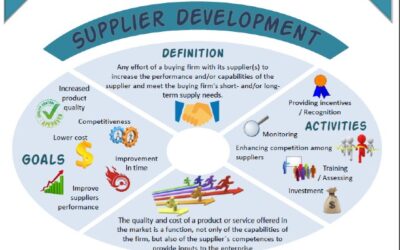Customer care and business growth
Business set up
The output of your business idea must appeal to the ultimate beneficiaries. Challenges and problems in society all present business opportunities. Many have complained about the lack of funds to establish businesses. Those who believe in their products would go all out to secure loans to start. Why customer care or service is relegated to the background especially when the business succeeds baffles me to greatly.
Customer care lapses
Talk about banks and other corporate institutions, and the story is no different. In fact, the experience may be one to forget, although I admit a few institutions are doing quite well. The non-verbal cues carry more weight than when you are engaged verbally. You are simply made to feel unwanted, but how ironical. Some receptionists are just rude and they do everything to show how rude they can be. I was in a banking hall belonging to one of the leading banks in Ghana lately. I stood in the queue waiting for my turn.
A customer was talking to a teller and the look on that teller’s face was enough to turn anybody away. The customer stood there with a solemn countenance as if she was at the mercy of this teller. When it comes to telephone conversations, you can actually freeze. You call to speak to someone via the front office of an organization and there is little or no courtesy from the receptionist or front desk person. Customer helpdesks are set up to deal with complaints but the customer is made to feel like the one at fault. So then, what is the use of a helpdesk?
All the above are examples of how we treat customers and potential customers. I am not surprised when I hear news of businesses collapsing. The causes may be varied, but the lack of customer care would rank amongst the topmost reasons why businesses collapse. It is important to note, that the front desk person or the customer care executive is the face of the business, not the CEO. That person has the ability to retain your customers or drive them away.
Yet from my experience from talking to businesses, this group of personnel are the least trained. Majority of front desk personnel I’ve come across are either Junior High or Senior High graduates who’ve not learnt much about customer care. Strangely enough, the few who’ve acquired higher education behave no different. I will share with you a few principles taught by Horst Schulze, chairman and CEO, Capella Hotel Group, during the Global Leadership Summit 2015, here in Accra. These principles are timeless in bringing customer care alive in your business.
Start with a Service Mindset
They must be taken through the vision and mission of the organization. They should be exposed to all the key policies of the business. I will recommend two major policies in this direction; the quality policy and the customer care policy. There is need to keep reminding the team that, service is the first product.
Keeping Customers is most important
Customer care executives become abusive and walk the direct opposite of what care stands for. They normally will say “do you know the number of customers we have? we don’t care losing just one customer”. That is how businesses fail and go down. Incidentally it happens subtly. Keep your customers like diamonds and you will see an upward trajectory of your business.
Start well and end well with customer service
Three quick steps to follow; welcome them, comply with their needs and remember to address your customers by name. Farewell is the last element to remember. Let your customer leave your organization feeling like coming back. Go like ‘have a nice day’ or ‘enjoy the rest of the day, hope to see you again soon’ etc.
Lead your teams to service excellence
So it doesn’t matter the size of your business, you must teach your team to serve with excellence. We go to work to show excellence. Every team member must understand this principle. So once you select your team, they’ll need to be properly oriented towards excellence. Once they know these supporting nuggets, they show it all the way, and the business thrives.
Caring, Empowering and respecting – the moral thing to do
Hire people to make them part of the business, to improve their customer service culture. Let your team share in the dream of your organization, and help them to accomplish the mission of the business. Service and care are products. The more you invest in these, the chances your organization will stand the test of time.
Johnson Opoku-Boateng is the Executive Director & Lead Consultant, QA CONSULT (Consultants and Trainers in Quality/Safety Management, Manufacturing Excellence and Food Safety) and can be reached on +233209996002, email: johnson@qaconsultgh.com.
Related Services
Ceres 100% Apple Juice Recall – Lessons to be Learnt by Food and Beverage Companies
Ceres 100% Apple Juice Recall – Lessons to be Learnt by Food and Beverage CompaniesOctober 15, 2021, Accra. “PRODUCT RECALL: CERES 100% APPLE JUICE”, FDA. You might haveseen a statement from the FDA with the above caption making the rounds on social mediabarely a week...
Product Packaging – Your Best Salesman!
Product Packaging - Your Best Salesman!“Competition is a great thing and critically important in any industry. I respect the companies that build their brand through innovation/great product, packaging, sharp marketing and clever ideas” John Robinson. A great product...
Supplier Development in a Post-Covid Era
Supplier Development in a Post-Covid EraI have used a greater part of my time last week in discussing world class manufacturing (WCM) with some trainees. Most of the lessons learned can actually be applied to the service industry. One definition pitches WCM as a...
Get In Touch
HEAD OFFICE
Aviation Highway , East Airport ( Spintex)
Landmark: Endpoint Homeopathic clinic



